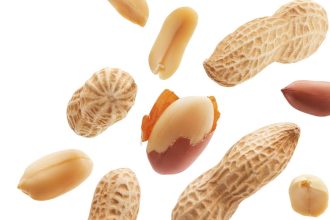Gold prices settled at their lowest in more than three months on Wednesday, as expectations for more central-bank interest-rate hikes later this year have diminished the appeal of the yellow metal.
Price action
-
Gold futures for August delivery
GC00,
-0.08% GCQ23,
-0.08%
fell by $1.60, or nearly 0.1%, to $1,922.20 per ounce on Comex. That was the lowest finish level for a most-active contract since March 14, FactSet data show. -
Silver futures for September delivery
SI00,
-0.15% SIU23,
-0.15%
declined by 6 cents, or 0.3%, to $23.08 per ounce. -
September palladium
PAU23,
+0.29%
fell by $47.20, or nearly 3.7%, to $1,246.90 per ounce, while October platinum
PLV23,
-0.33%
shed $9.10, or 1%, to $924.90 per ounce. -
Copper futures for September
HGU23,
+0.12%
declined by 5 cents, or 1.2%, to $3.74 per pound.
Market drivers
“Essentially, the only thing moving the gold market…has been [Federal Reserve] rhetoric and actions,” said Brien Lundin, editor of Gold Newsletter. The expected pause in interest-rate hikes has had little lingering effect on gold thanks to Fed Chairman Jerome Powell and his compatriots “ramping up the hawkish talk.”
A rally in gold in the past few months has fizzled as central bankers around the world, including Powell, have promised more interest-rate hikes to come.
On Wednesday at the European Central Bank’s annual forum in Sintra, Portugal, the world’s top central bankers vowed to keep working to fight inflation until there is evidence they have succeeded.
Gold has also been experiencing the “usual summer slowdown and the magnetic effect of the $1,900 price level,” Lundin told MarketWatch.
However, he sees U.S. interest rates nearing their peak and said gold will start discounting the next big event, which will be rate cuts. “Whether that comes via the expected recession or some crisis-level event, it’s going to come,” he said.
Such an event would launch gold to significantly higher levels, but gold “will have risen considerably before that happens,” said Lundin.
Gold has seen a sharp turnaround in the past few weeks, with the yellow metal reaching the second-highest settlement on record for a most-active contract back in May when it finished at $2,055.70 an ounce on May 4.
Gold’s highest level on record arrived on Aug. 6, 2020 when prices finished at $2,069.40 per ounce, according to Dow Jones Market Data.
Now, gold is nearing a technical turning point as the most-active contract nears the $1,900 per ounce level.
Craig Erlam, senior market analyst at OANDA, said in emailed commentary Wednesday that demand for gold has declined as investors bet on more rate hikes later this year.
Gold “appears to be closing in on $1,900 which could represent the next big test of support for the yellow metal,” Erlam said.
“Appetite for gold has dwindled as investors have increasingly come around to the reality that not only could more rate hikes be in the pipeline, but rate cuts this year are now highly unlikely. Inflation is proving even more stubborn than expected on the way down and that’s bad news for gold.”
Still, gold’s ability to hold above the key $1,900 level “shows that the reluctance from investors to fully shift away from this haven asset,” said Rupert Rowling, market analyst at Kinesis Money.
“While interest rate hikes may be softening gold’s appeal, the concern that the aggressive stance of central banks will tip economies into recession has made gold’s decline very steady, with investors wanting to keep onto their safety blanket for as long as possible while market confidence remains so fragile,” he said in market commentary.
Read the full article here



